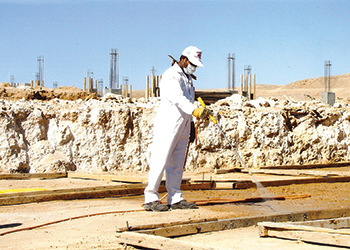
Following its successful introduction in 2014, the American Hardwood Export Council (AHEC) has integrated a new American Hardwood Environmental Profile (AHEP) system into its website (www.ahec.org).
The new and improved tool, which has been rebuilt from the ground up to be more dynamic, consistent, and easier to use, is available to all the hardwood growers, producers and exporters who make up AHEC’s membership, and will enable them to provide a customised environmental profile for each and every shipment load of US hardwoods shipped overseas.
The AHEP is a consignment-specific shipping document that provides access to information on the risk of illegality and sustainability of the US hardwood lumber or veneer species contained in the container.
The aim is to ensure that credible environmental data specific to individual consignments – adjusted according to key parameters such as kilning efficiency and transport routes and modes - can be delivered quickly and efficiently without significant cost.
“The new AHEP tool has been designed to meet global industry and government drives to increase transparency and provide evidence for the unparalleled environmental credentials of imported timber,” says Roderick Wiles, AHEC director for Africa, Middle East, South Asia and Oceania. “It is a science-based document and replaces the old RPP in Japan and satisfies multiple ‘due diligence’ laws like the Lacey Act in the US, the EU Timber Regulation, and Japanese ‘Green Procurement’ or ‘Gojo Wood’ laws.”
As such, the AHEP will provide, for every consignment, access to information on the name of the US supplier, product description, quantity of wood, commercial and scientific species name, place of harvest, and documents demonstrating negligible risk of illegal harvest.
Wiles says the included environmental impact information also encourages wider recognition of the sustainability and low carbon footprint of American hardwoods as a material.
“The development of EPDs is a response from the confusion that arises from the wide variety of environmental claims made by material suppliers; some may be genuine while some may just be downright false. The true environmental impacts of materials cannot be summed up by one single attribute, and it is time that consumers and policy makers had the ability to truly compare the environmental footprint of the different products and materials they source.
“We are constantly looking for ways to improve our service to our members so that they in turn can provide their customers with the level of service they demand. This new, easier and controlled tool means we can confirm that the choice of American hardwood is environmentally sound and exceeds all legal requirements,” concludes Wiles.
AHEC is a leading international trade association for the US hardwood industry, representing committed exporters among US hardwood companies and all the major US hardwood production trade associations. It globally promotes American hardwoods in more than 50 export markets, concentrating on providing technical information on the range of species, products and sources of supply.





















_0001.jpg)


.jpg)
















.jpg)








.jpg)



